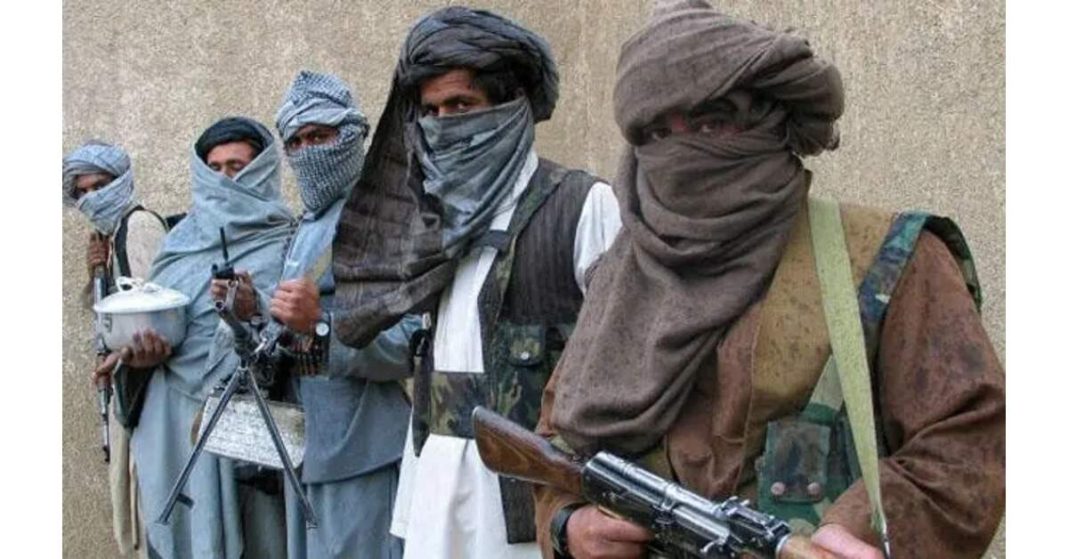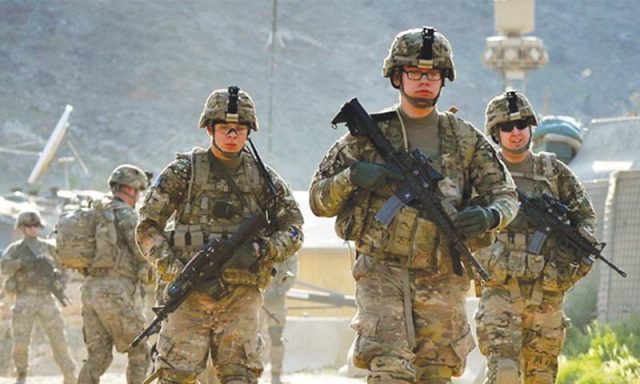A grand jirga comprising 80 elders from Khyber in Pakistan’s north-western frontier province, Khyber Pakhtunkhwa, met the TTP (Tehreek-i-Taliban) and its associated groups in Tirah Valley for peace talks, to convince the Pakistani Taliban and its associated groups to vacate the areas on Monday.
The Jirga consisted of elders from all five districts of the Khyber Agency. The tribal leaders had requested the government to negotiate with the Taliban to urge them to vacate their area peacefully. The Khyber Pakhtunkhwa government, which is dealing with the Jirga, agreed but allowed the Jirga a time frame of seven to ten days to negotiate with the Pakistani Taliban and its associated groups.
Taliban Demand Pre-2018 FATA Status, Sharia ImplementationThe 80-member grand jirga consulted with the local Jirga before initiating a dialogue with the Taliban. Amid the negotiation, the ceasefire between the Taliban and the security forces was agreed to remain in effect until Monday evening, to allow negotiations to continue in a peaceful environment.
Insiders familiar with the proceedings said that during the first round of talks, the TTP operatives presented two key demands. The first is the restoration of the pre-2018 status of the federally administered tribal areas, which were merged with Khyber Pakhtunkhwa that year following the constitutional reforms.
Secondly, they demanded the implementation of Sharia law in the tribal districts, while some sources say they demanded the implementation of Sharia law across the country. After the initial meeting with the TTP and its associates, they consulted with each other to finalize a response strategy. Sources say that the negotiations are expected to continue in the coming days. However, both sides are showing limited optimism regarding the conclusive or effective result of these negotiations. The Tehreek-e-Taliban also called for allowing their unhindered movement in the border regions of the newly merged districts.
ALERT: A grand jirga comprising 80 elders from Bara has departed for Tirah Valley to hold talks with the Pakistani Taliban and its associated groups to vacate the areas.
The jirga includes prominent elders from all five tehsils of Khyber district, sources said. The elders from…
— The Khorasan Diary (@khorasandiary) October 13, 2025
The residents and the political observers believe the Khyber Jirga and TTP Talks may bring down the intensity of the violence in the region. Security officials have allowed tribal mechanisms to play their traditional mediating role. Tirah Valley, known for its rugged terrain and strategic locations near the Afghan border, has historically been a hotspot for militancy and military operations.
Tribal Jirgas have long played a role in presenting a resolution to the conflicts, often brokering peace deals and preventing bloodshed in the region. The results of the ongoing negotiations remain uncertain, but the proactive participation of the prominent elders of the region has injected some sense of optimism in the otherwise bleak circumstances in the tribal belt.
Earlier, a 100-strong jirga consisting of tribal leaders, former parliamentarians, representatives of political and religious parties, and civil society activists was formed following a meeting of the tribal representatives with the IGFC and the FC headquarters in Peshawar on October 2.
The top military commander had declared in the meeting that either the Tirah tribes should agree to vacate their homes for possible military operations or terrorists should be stopped from carrying out attacks against security forces. The IGFC had warned that if the Tirah tribesmen didn’t accept any of the proposals, the security forces would launch decisive military operations against the proscribed terrorist groups.
However, the jirga unilaterally took the responsibility of holding talks with the members of the banned outfits, including TTP, Hafiz Gul Bahadur Group, and Lashkar-e-Islam, currently operating in Tirah, to convince them to leave the valley. The Balahisar jirga was held in the aftermath of the September 27th Shadali village incident, in which 21 people had died. Security officials insisted that the killing happened due to an explosion at an ammunition depot built inside a house. However, the residents alleged that the people were killed during the airstrikes.
According to Pakistan’s local media, the 80-member jirga was taken to the hilly areas of Kalona and Malakdin Khel for talks with armed terrorists after they got a go-ahead signal on Sunday.
Read more: China Calls for Restraint as Deadly Pakistan-Afghanistan Clashes Threaten Regional Stability
Local sources had established contact with the TTP local commanders Ghazi Abdullah, Abuzar Afridi, and some of their other confidants, and a day-long ceasefire was agreed upon to facilitate the jirga’s travelling to the valley.
Fragile Negotiations Amid Rising Tensions and Border Clashes
The sources said that the talks between the Khyber Jirga and the TTP team were held in an atmosphere of fear and uncertainty as the terrorist group was in a hurry to conclude the negotiations, fearing airstrikes or a ground offensive. Sources claimed that two other terrorist groups, the Hafiz Gul Bahadur group and Lashkar-e-Islam, did not attend Monday’s negotiations as no contact could be made with them.
A jirga member tried to explain to the terrorists that innocent people are suffering from the armed struggle against the TTP. The jirga argued and explained to the TTP members that an armed struggle would not yield results for any side but would cause huge human losses in the region.
However, the jirga members said that the TTP Noor Wali Mehsud group expressed rigidity regarding acceptance of their demands. Teams negotiating from TTP lacked discipline as they would constantly change their stand and were in a hurry to end the talks. The negotiations lasted nearly an hour.
The jirga members returned to Bara on Monday evening and are expected to meet the security officials in Peshawar to apprise them of the TTP demands. They had planned to travel to Tira Valley last Friday, but preferred to wait for a go-ahead from interlocutors in the valley. The talks between the jirga and TTP follow a week-long border clash between Pakistan and Afghanistan, mainly on the Durand Line and other border regions.
With Additional Inputs from GVS South Asia Desk














